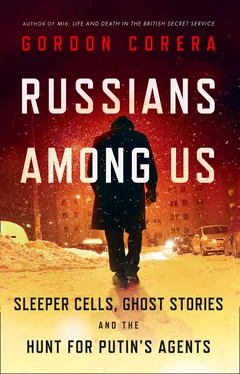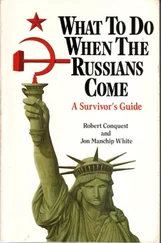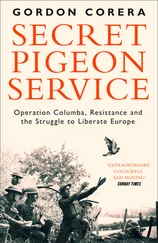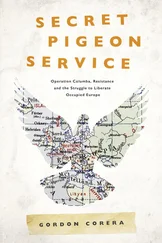1 ...7 8 9 11 12 13 ...23 The end of the Cold War had not been a moment to relax for Directorate S. Rather it was a time to double down. The world was fluid and uncertain and that meant intelligence was more important than ever. In the first few months after the coup, even while the future of the whole KGB was uncertain, a decision was taken to increase the focus on illegals. “The world is not as safe as some people present it to be,” Leonid Shebarshin, head of the First Chief Directorate, explained soon after he retired. “So I think it would be a very safe measure and a good precaution to strengthen the illegal branch.”
The emphasis on illegals was part of a traumatic shift by the new SVR. In the early 1990s it was forced to cut its overseas network of officers operating under diplomatic cover by a third. The fact that relations with the West were improving offered new opportunities, though. In the Cold War, it was hard for Russians to get visas to the West. Now that commercial ties were growing, spies could be placed under cover in business ventures. And the openness also offered the chance to dispatch more illegals. “While favourable circumstances exist it is essential to utilize the repose to deploy to the West as many illegals as possible and to cultivate and recruit more special agents,” one member of the directorate, Alexander Kouzminov, later explained. It was almost as if, as everything else crumbled, the illegals became even more important. But they were about to be dealt a serious blow.
DRESSED IN SHABBY clothes, a Russian knocked on the door of the American embassy in one of the Baltic states in March 1992. He was turned away disappointed, not once but twice. The Americans seem to have been nervous that the elderly man claiming he used to work for the KGB may have been a test of their new, more friendly relationship with Moscow. So the next stop for the Russian was the British embassy in Riga, Latvia, where he explained to a female diplomat that he had worked in the KGB’s First Chief Directorate and had access to top secret material. The Russian pulled open his bag. Inside were spicy sausages, bread, and dirty clothes. But he also pulled out some handwritten notes. These, he explained, were the names of illegals operating in the West—both their real identities and their cover names. The British diplomat immediately called MI6. At the time, the British Secret Service was based at Century House in Lambeth, a grubby, twenty-story tower block. It was a gloomy place that reeked of the past. “Are you still here?” officials from the rest of government would sometimes joke with its chief, Colin McColl, when they saw him. The Cold War was over and people were asking what exactly spies were for. But the team that dealt with Russia, and which sat on the thirteenth floor with a panoramic view of the nearby Oval cricket ground, had no intention of stopping even though their old adversary was on the back foot. The Russian defector in Riga, they soon learned, was a prize of the highest order. Vasili Mitrokhin was a former KGB archivist who now wanted to inflict as much damage as he could on his former employers. He had secretly copied out and then buried large chunks of the KGB’s operational history in the garden of his dacha.
MI6 organized Mitrokhin’s exfiltration via boat on the seventy-fifth anniversary of the Bolshevik Revolution, while a young officer dug up his files so they could be removed in six large trunks. Three thousand five hundred counterintelligence reports would be sent to thirty-six countries. The US file alone consisted of eight hundred pages. The CIA counterintelligence chief rued the fact he had to travel to London cap in hand for material that could have been his. The FBI, meanwhile, said it was “the most detailed and extensive pool” of intelligence about enemy spies they had ever received. It led directly to a number of illegals, one of them a KGB man living on the American East Coast under the name Jack Barsky. He was put under surveillance by the FBI, who overheard him confessing who he really was to his wife. Disillusioned, he had actually told the KGB back in 1988 that he had been dying of AIDS so that he could give up spying and bring up his child.
Fortunately for Heathfield and Foley in Canada, they had been deployed after Mitrokhin had retired in 1984. But the defection meant that Moscow could not be sure that the legend of any illegals trained before that date had not been blown. When the scale of the disaster became clear, the SVR knew it would have to rebuild its deep cover networks by sending out even more new illegals.
In Britain, there were only limited resources to follow up the two hundred leads Mitrokhin produced about possible agents. The domestic security service MI5 had cut back its counterespionage teams by more than half between 1990 and 1994. A joint MI5-MI6 team targeting Russians in the United Kingdom had been disbanded. In one case a team was passed an intercept suggesting a message was about to be picked up from a drop site, offering the chance to catch a Russian intelligence officer in the act. But at the last moment, the surveillance team was pulled off to deal with something considered a higher priority. The sense was that all of this spy-versus-spy stuff was a bit old-fashioned. There was an important contrast in the 1990s. Western leaders and policy makers thought the Cold War had been won and Russia barely mattered anymore. Russia would “naturally” end up a liberal democratic state. That meant spying on Russia and catching Russian spies was no longer a priority. There were other threats to worry about now. But meanwhile, Russia, on the back foot, felt it needed intelligence on its old adversaries more than ever, precisely because it was vulnerable.
IN MOSCOW, CIA and MI6 officers found themselves in a strange new world. A few months after the coup, John Scarlett became MI6’s first-ever head of station who was “declared” to the other side’s spies. It was a second Moscow posting for the future MI6 chief and as he walked the streets, he could sense how the speed of the Soviet Union’s collapse had been bewildering and traumatic. “People were out in the streets selling their personal belongings,” he later recalled. Russia had gone from being a superpower seeing itself as on a par with the United States to an economic basket case. Some liberals in Moscow had hoped for an infusion of support from the West. Instead all they got were businessmen out to make money and some economists from Harvard promoting “shock therapy” in the form of relaxing price controls and privatizing state industries to create “popular capitalism.” The result was a disaster. The economy went into in free fall, with prices skyrocketing, savings disappearing, manufacturing collapsing, and unemployment rising rapidly. This was a catastrophic first experience of Western capitalism in the early 1990s. For most people shock therapy simply created shock. The West saw outward signs of change in elections and privatization but it did not see the pain inflicted on ordinary people. But then it was not really that interested. The Cold War was over. It had won. And so who needed to worry about Russia?
As Western spies sat down with their old adversaries over vodka, they could sense the Russians struggling to come to terms with their new status. But in the meetings there was more drinking than trust. Each side thought the other had not stopped spying. And each was right. The SVR was certainly going through difficult times, but those who watched Russia closely in the CIA began to see warning signs that the old enemy was returning faster than anyone realized. In one officer’s mind, the KGB had splintered but then reconstituted itself to fight again, a bit like the robot in the Terminator films. But no one at the top was paying attention to the warnings of people dismissed as “Cold War dinosaurs.” “People looked at me like I was insane. It was lonely,” recalls one CIA officer. While most people in the West believed Russia was changing, the old guard in the spy business—who could still feel the watching eyes on the streets of Moscow—never believed it had or would.
Читать дальше












